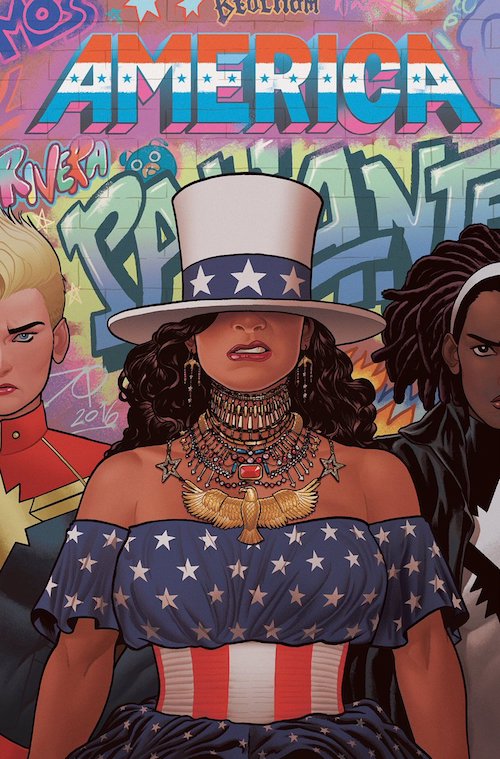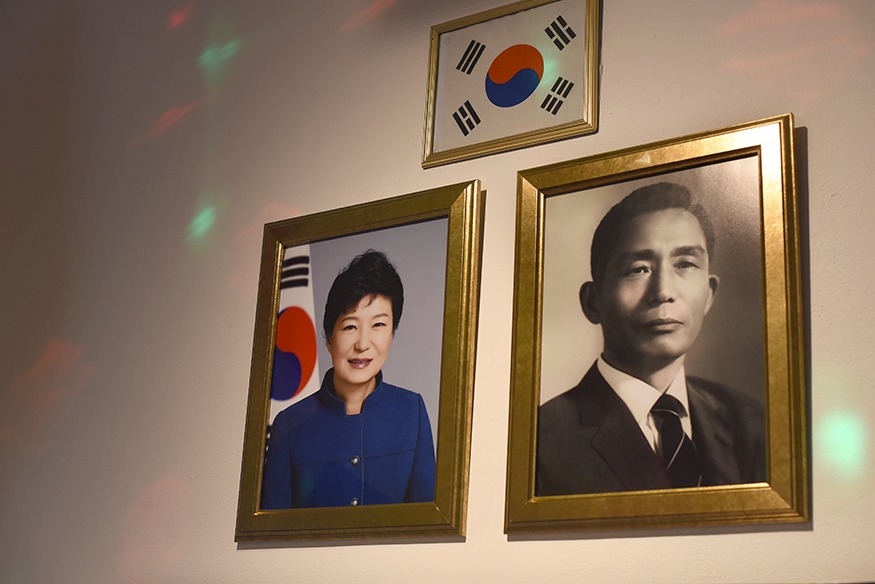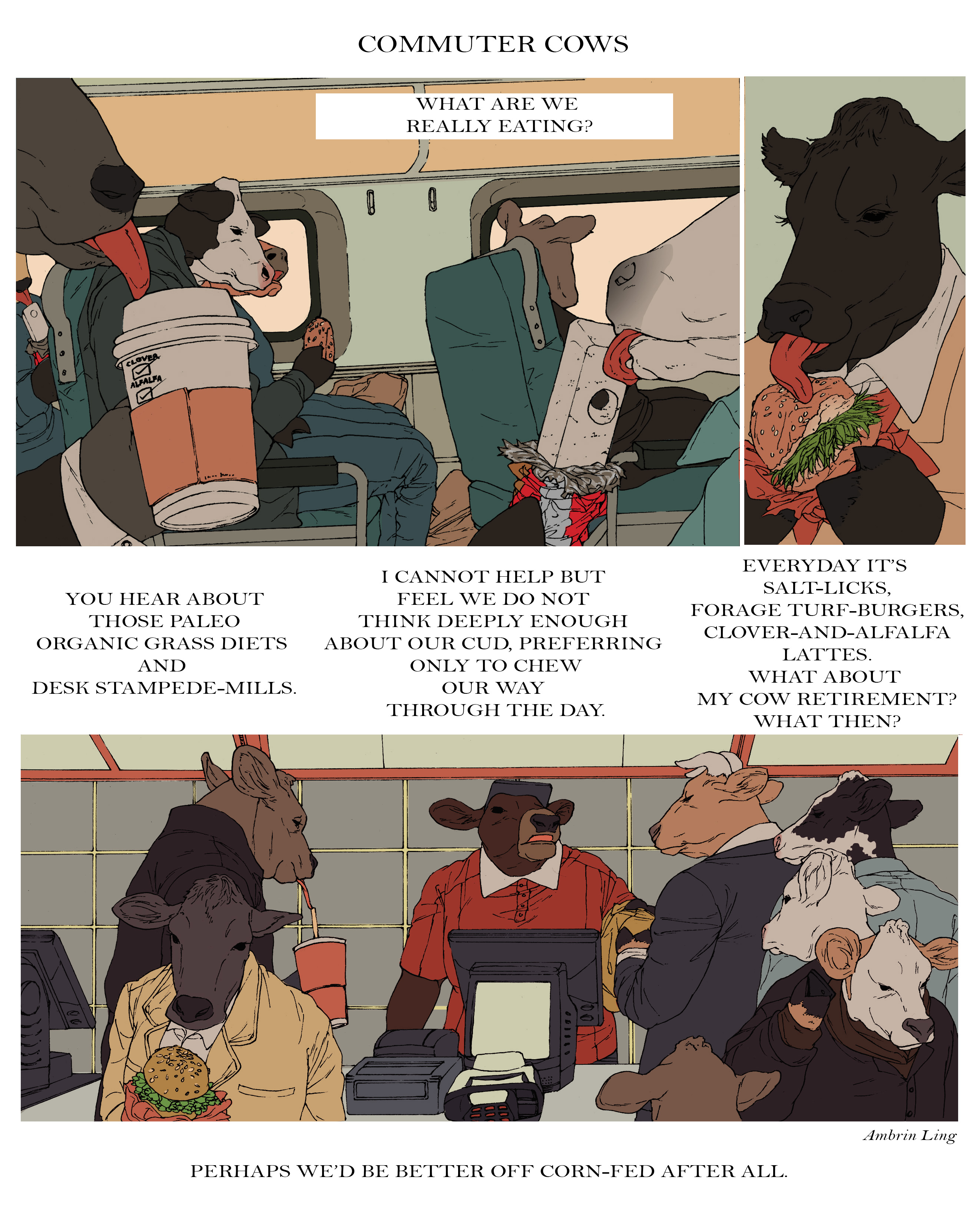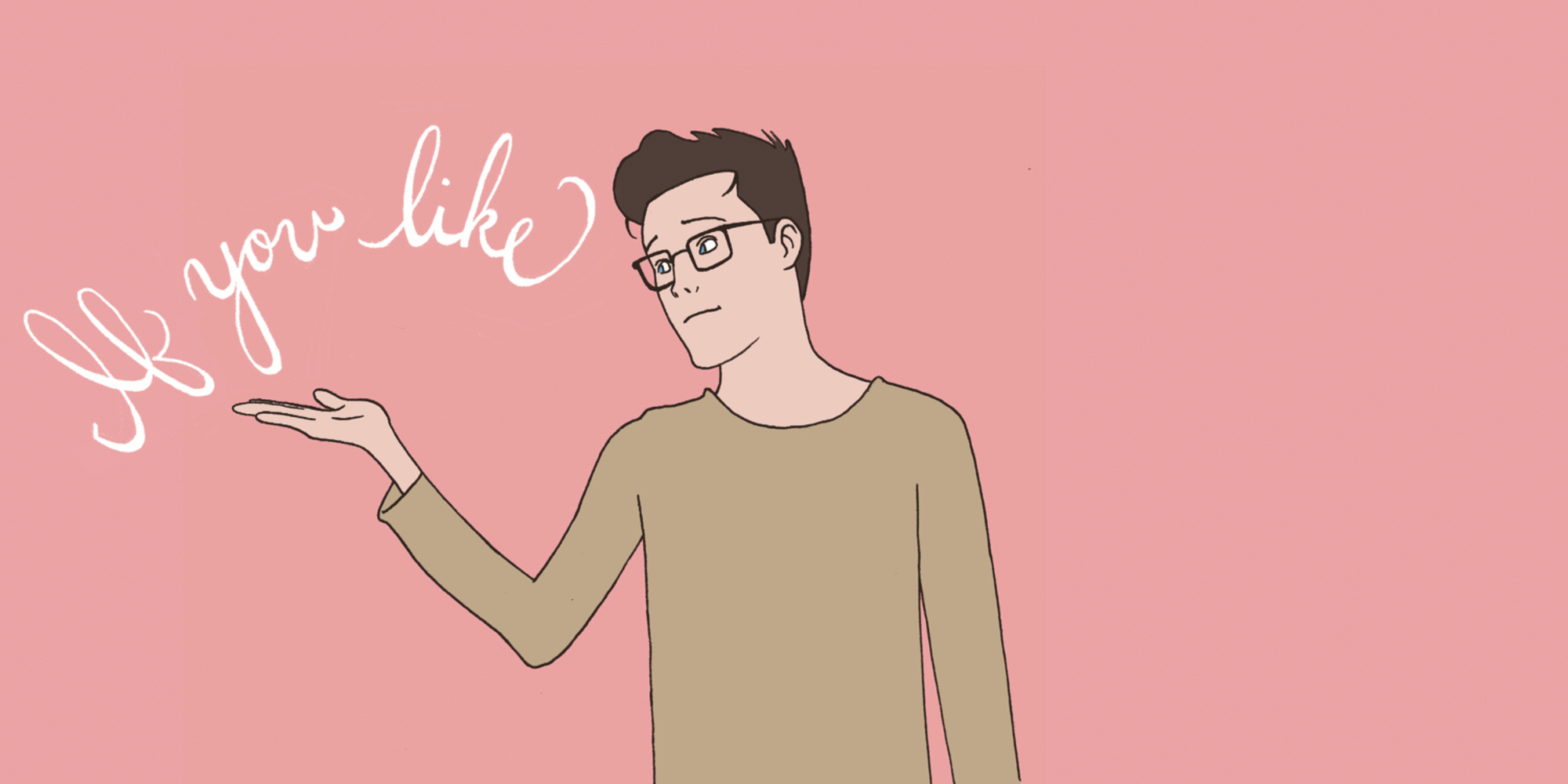
In IYLTR, Brian Fabry Dorsam puts his passion for unsolicited recommendations to use. Like a certain bit of pop media? Brian’s got a comic book suggestion for you!
A few weeks ago, progressive leftists began a think-piece war over whether or not Richard Spencer, a white nationalist Nazi fan-boy crybaby who thinks that everyone with skin darker than a bleached asshole should leave the country, deserved a punch in the face. Many on the left claimed that we must never resort to violence at any cost. Others on the left claimed that when someone says things like, “One wonders if [Jews] are people at all, or instead soulless Golem,” a punch in the face is the least we can do.
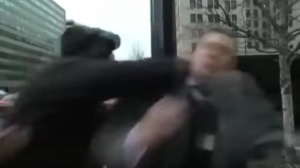 Memes began to surface featuring Jack Kirby’s famous drawing of Captain America socking Hitler juxtaposed beside a screen-grab of Indiana Jones leaning over a Nazi soldier with his fist cocked. Above these images was written, “Punching Nazis is an American Tradition.” Well, you know, let’s not all start high-fiving just yet.
Memes began to surface featuring Jack Kirby’s famous drawing of Captain America socking Hitler juxtaposed beside a screen-grab of Indiana Jones leaning over a Nazi soldier with his fist cocked. Above these images was written, “Punching Nazis is an American Tradition.” Well, you know, let’s not all start high-fiving just yet.
In fact, the United States notoriously waited a couple important years before entering World War II, because it turns out we didn’t mind so much that Hitler was stomping all over Europe killing everyone that didn’t look like Dolph Lundgren. It was only after Japan bombed a US military base in 1941 that we decided we might actually get around to it, after all.
In reality, punching Nazis is much more a comic book tradition than an American one. Captain America #1 hit stands in March of 1941, nine months before the attack on Pearl Harbor. Until then, most of the Nazi-punching had been done by Britain and France. So, when Kirby — a son of Jewish immigrants who grew up in a Lower East Side tenement — drew a son of Irish immigrants who grew up in a Lower East Side tenement slugging the world’s greatest real-life super villain, it was an act of scathing political commentary. Cap had beat America to the punch.
Fast forward 76 years: Your Aryan alt-Reich poster boy gets cold cocked during an on-air interview and the moderate think-piece brigade wonders if he had it coming.
If you aren’t bothered by Nazi fuckboys taking hits in public, then I’ve got just the comic for you: “America” by Gabby Rivera, Joe Quinones, Joe Rivera, Paolo Rivera, and José Villarrubia.
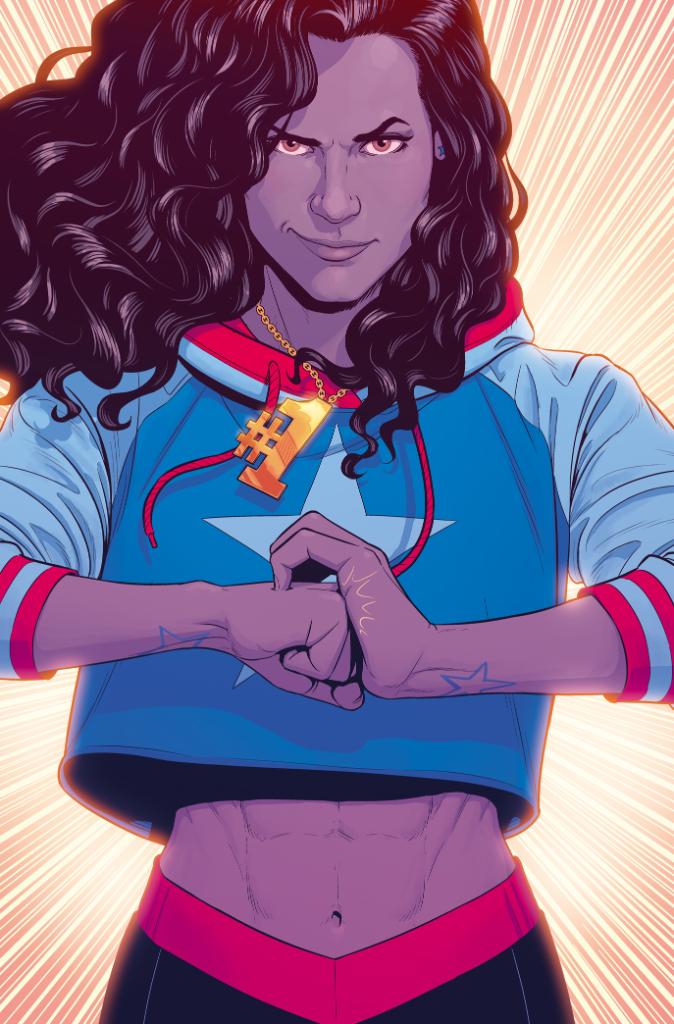
For those not up to speed, the Young Avengers are a rag-tag team of super queer super teens who saved the universe a few years back (thank them when you see them) and pushed the boundaries of who our heroes can be and love. Kieron Gillen and Jamie McKelvie’s stint on “Young Avengers” is one of my all-time favorites and, not coincidentally, happens to be where I met queer Latinx punch-machine America Chavez.
The daughter of intergalactic, multiverse-saving moms, America cares about two things: America, and knocking fools out. Sometimes she punches so hard that she opens up portals into other dimensions.
After a few years of bouncing around other titles (“Young Avengers,” “The Ultimates,” “A-Force,” and others), America finally has her own book. In issue #1, America is off to Sotomayor University (right next to Bayard Rustin Memorial Hospital — be still my socialist heart), which is essentially a super-teen Hogwarts, where she meets old friends and hones her bad-guy-pounding skills.
While helping her genius former-hero friend, Prodigy, with some homework, the two accidentally transport America to the Western Front, where Cap is battling Nazis. Disoriented from traveling 70 years into the past and overwhelmed from arriving smack in the middle of a battle, America still pulls it together for one final, triumphant panel:
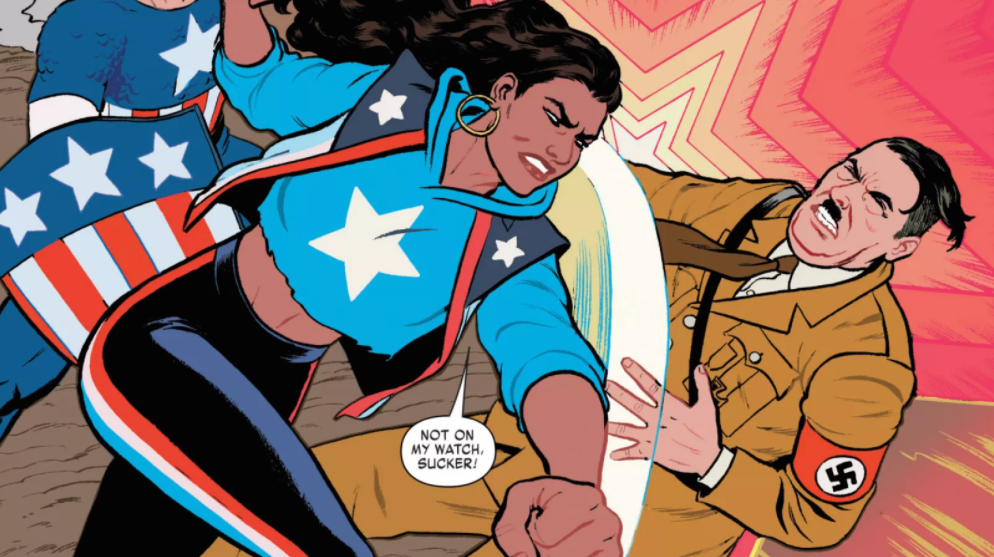
Let’s recap: Issue #1 of “America” ends with an image of a star-spangled, queer Latina woman named “America” feeding a knuckle sandwich to history’s biggest bigot. At a time when women, queer people, people of color, and immigrants are all being directly discriminated against by their own president, the importance of this final panel cannot be overstated. Make no mistake: When America punches Hitler, she’s punching Donald Trump.
Writer Rivera (note the all-Latinx creative team) made it clear that the book’s intersectionality will not begin and end with America.
“She will not be the sole representation of queer people and women and Latinas,” Rivera told the Huffington Post. “There will be communities of folks all around her testing their super powers and finding strength within themselves. We’ve been very intentional with reflecting different body types and gender presentations. Our characters are black, Afro-Latinx, Asian, mixed, and everything in between.”
Even if punching Nazis isn’t an American tradition, Gabby Rivera and Joe Quinones have established it as an “America” tradition.
Issue #1 is in comic stores now. Issue #2, featuring America in full-“Formation” Bey, will be available on April 5.
